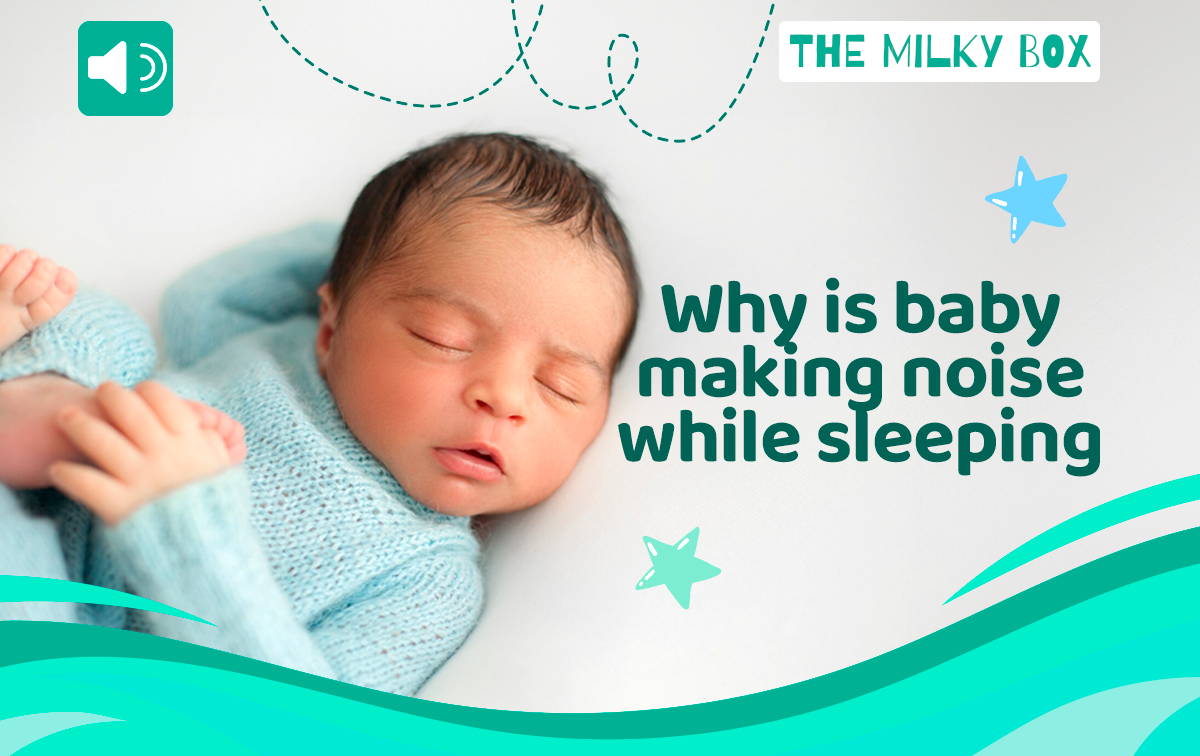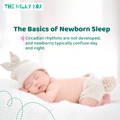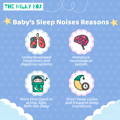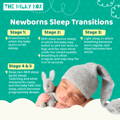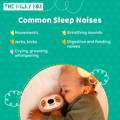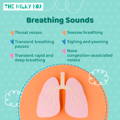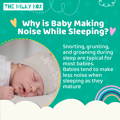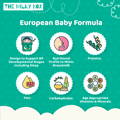As we’ve covered various noises babies make during sleep and instances when attention is needed, it’s critical to ensure they’re sleeping safely. Adhering to the suggested safe sleep guidelines can provide your little one with a secure and safe sleep environment.
❖ Lay your baby down on their back for naps and at night sleep. Use a flat, firm sleeping surface like a crib mattress covered with a fitted sheet.
❖ Steer clear of soft surfaces like couches and armchairs when putting your infant to sleep.
❖ To lessen the chance of suffocation or strangulation, keep your baby’s sleeping area clear of soft bedding toys, pillows, and crib bumpers.
❖ Room sharing — where your baby sleeps in a crib or bassinet next to your bed — is advised in the first six to twelve months of life. Your baby can sleep in your room but not in your bed.
❖ Keep the room comfortable, and dress your baby in light clothing to prevent them from overheating.
❖ Offer your baby a pacifier when it’s time for a nap or bed, but don’t force them to accept it.
❖ Avoid covering your baby’s head with blankets, hats, or anything else that can obstruct their airway.

